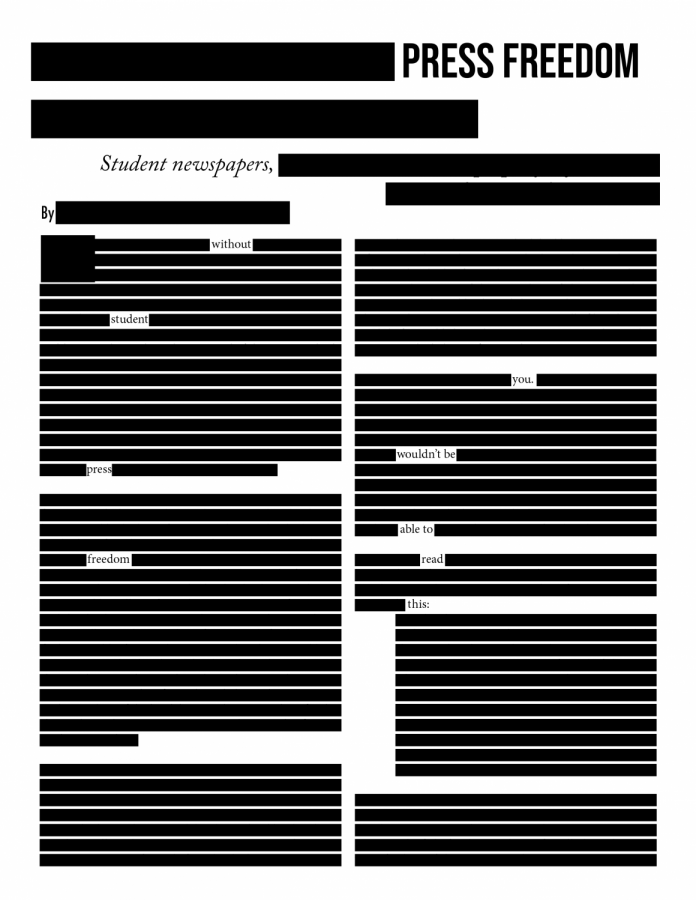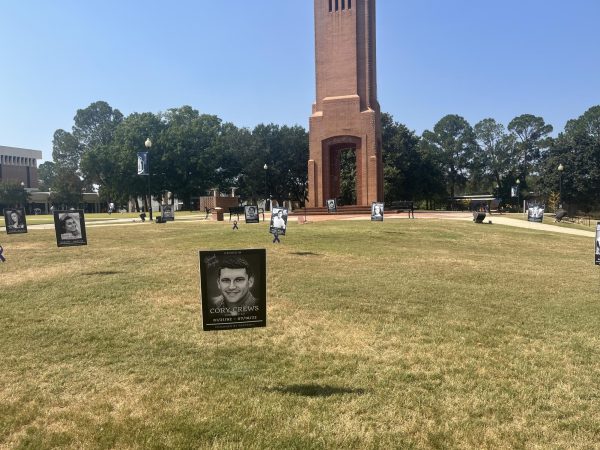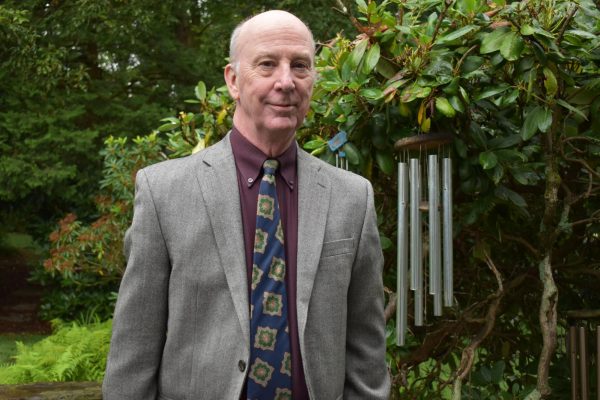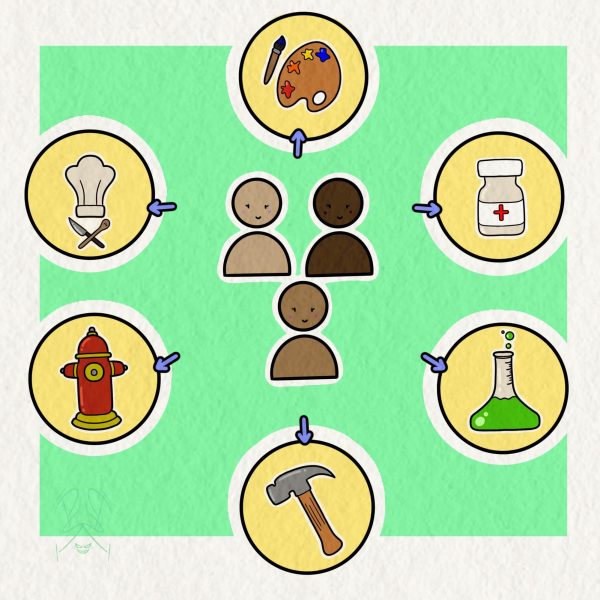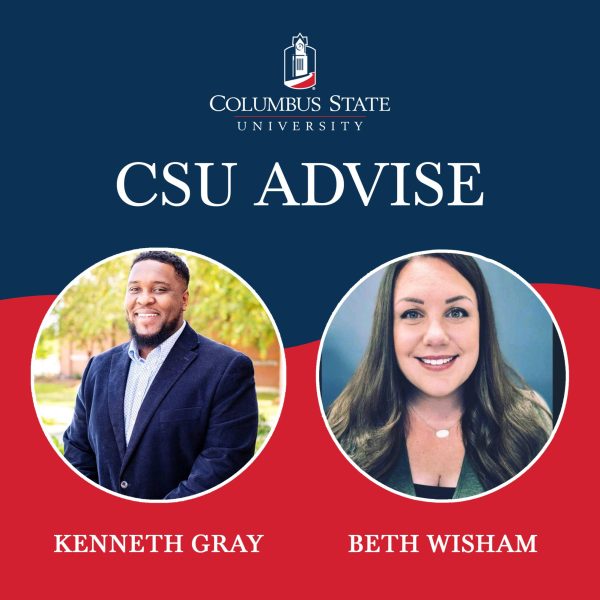January 30 is Student Press Freedom Day. Here’s Why it Matters.
Student newspapers, such as The Saber, can’t properly inform their readers if they aren’t allowed to.
What would the press be without freedom of expression? Student Press Freedom Day was created by the Student Press Law Center, a nonprofit organization dedicated to protecting the rights of student journalists, as a call to action against the censorship of student newspapers. It is, by some means, a response to the 1988 Hazelwood School District v. Kuhlmeier ruling, where the principal of the Missouri high school involved censored pregnancy and divorce articles from the school paper. The students sued, but the Supreme Court ruled that the students were not contravened of their First Amendment rights, explicitly stating that the “school need not tolerate student speech that is inconsistent with its basic educational mission” and declaring that the “school newspaper here cannot be characterized as a forum for public expression” in the syllabus of the ruling.
Since then, students advocating for the right to a public forum at both the secondary and post-secondary levels have instead looked to reforming at the state level. Their strides have found some success, the New Voices legislation bringing freedom of the press to school newspapers in 13 states. There are three parts to this legislation: the first is to restore student expression to high schools, the second is to protect public colleges from the interpretations of courts, and the third attempts to extend First Amendment rights to private colleges, where students face more difficulty in finding a public forum when compared to those at public institutions. Other legislation has been brought to court in the time between the Hazelwood v. Kulmeier and New Voices movement; therefore, a knowledge and understanding of the legal, historical context is beneficial to those who wish to procure First Amendment rights for student journalists.
What does this matter? Censorship can be more dangerous than it seems. News organizations are sometimes described as a fourth branch of government, because citizens decide what they think based on what they read, see, or hear in the news, whether at the national, local, or school level. When people are allowed to censor news organizations, the organizations are effectively forced to lie by omission. Censorship can make someone look bad by omitting information that makes someone look good. It can also make a policy look effective by censoring evidence to the contrary. The press can’t have words stuffed in its mouth to regurgitate to the public, but while journalists can say whatever they want, overseers can potentially filter their words before publishing them. Unsuspecting readers and viewers can be led away from reality.
What you don’t know can hurt you. If a news report might hurt a school’s reputation, the report is especially vulnerable to censorship. This is unsafe for students, as whatever news an administrator might want to censor could alert students to dangers they weren’t aware of. A campus wouldn’t be as safe as it seemed if sex crimes weren’t being reported or if only a few people knew about the asbestos in an old building. Students need to know information that will affect their futures — is their school stretching the truth about its job placement rates? Are students able to access the services offered to them?
If you like to read The Saber, you can support its mission to be a quality information source by observing Student Press Freedom Day. The SPLC gives a number of suggestions on how to do this:
- Join local New Voice grassroots campaigns.
- Submit letters to local newspapers, TV, and radio shows so that they can be aired on Jan. 30.
- Write to your representatives. If you don’t know who your representative is, go to the U.S. House website.
- Tweet to @SPLC, tag @studentpresslawcenter on Instagram, and/or use #StudentPressFreedom on all social media platforms.
- Raise money for your student-run paper.
- Arrange a rally or interest meeting on campus.
Continuing to read and support the First Amendment rights of student-led press organizations past Student Press Freedom Press Day is the most contributive way to continue the fight for those rights—after all, the right to write freely won’t be won in one day.

Jessica is an English Literature graduate who minored in History. Jessica started working as a reporter for The Saber/The Uproar during her first semester...



